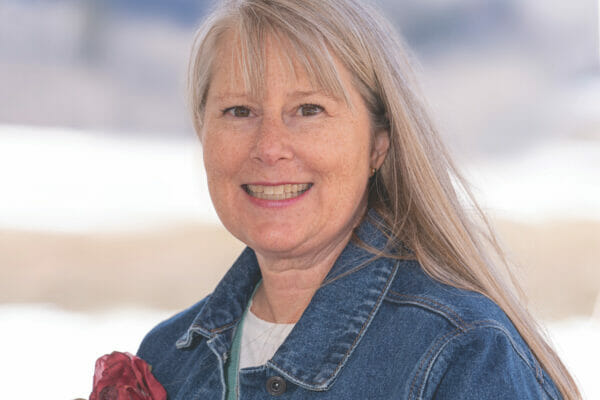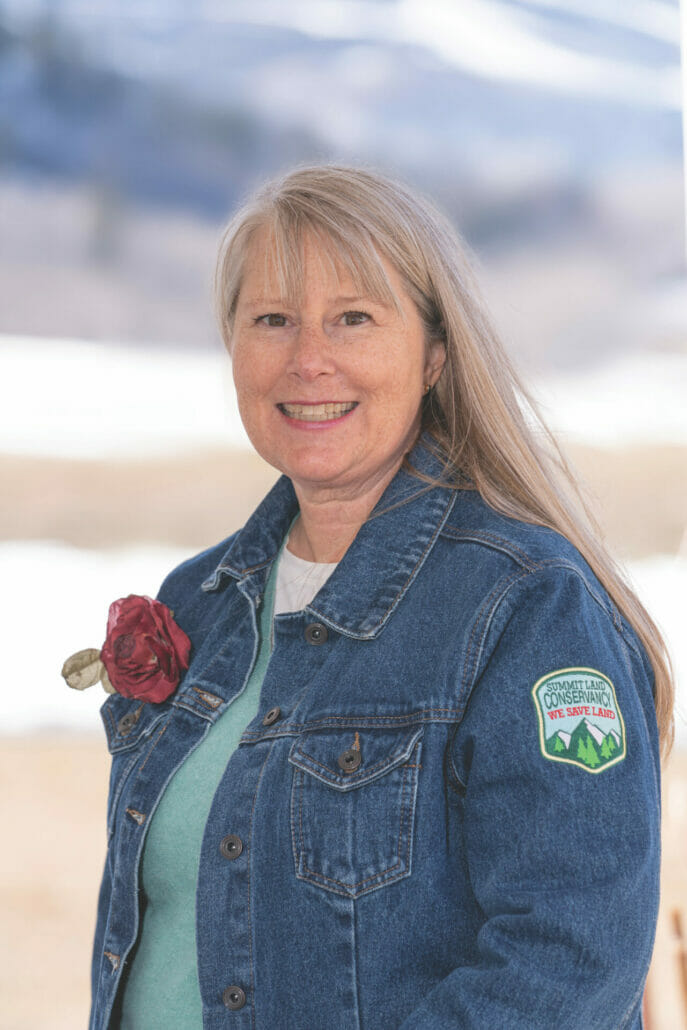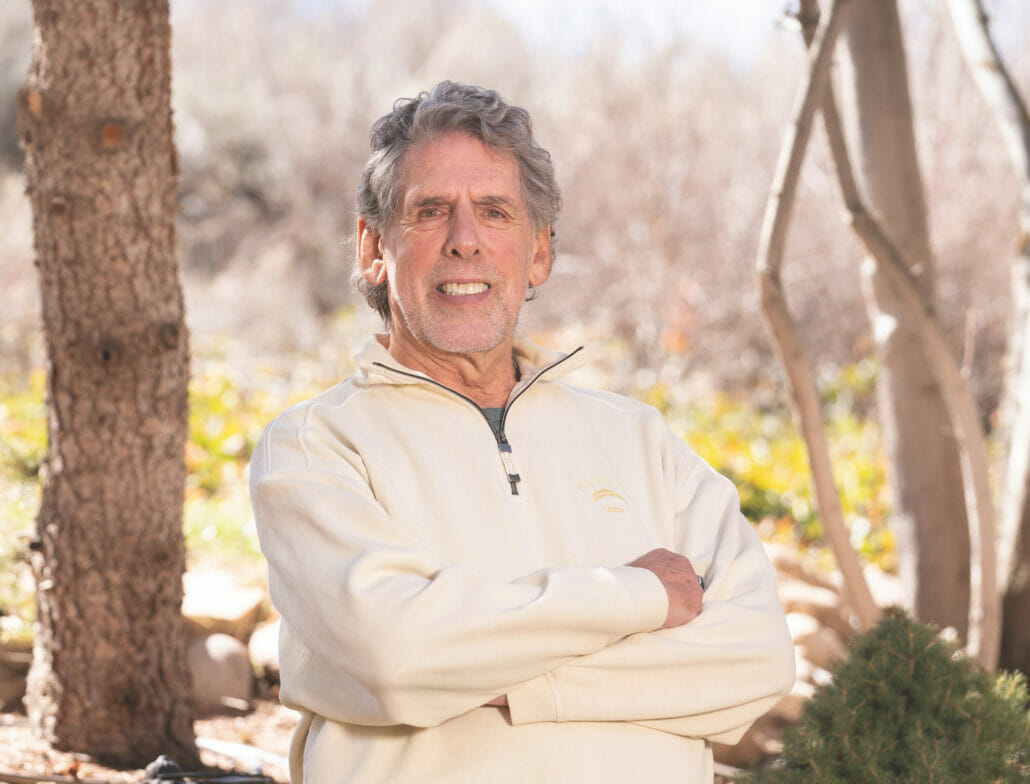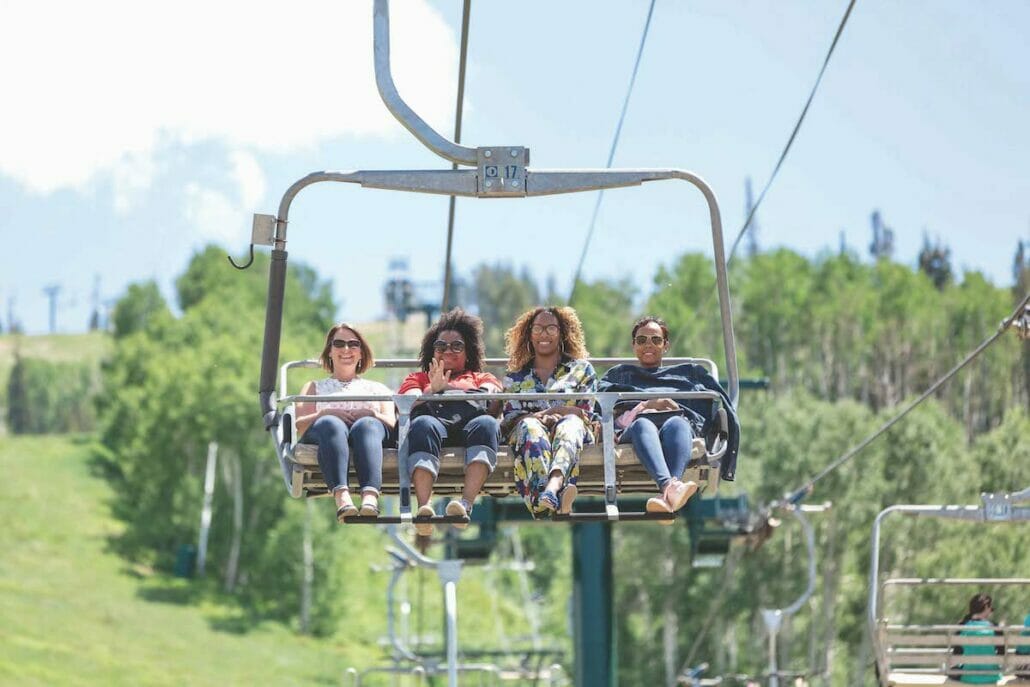
Summit Land Conservancy protects Park City land from development
Cheryl Fox is on a mission to preserve our landscapes
Summer 2022
Written By: Ashley Brown | Images: Deborah DeKoff and courtesy
Cheryl Fox’s migration tale is likely familiar to many Park City residents. In 1987, she moved into her parents’ Deer Valley condo to teach ski lessons for a season before starting graduate school. Instead, that season kicked off a 34-year career as a ski instructor.
The first few years, she would return during her winter break from school to teach, and in 1991, she made Park City her full-time home while finishing her thesis for a MA in English literature.
It wasn’t long before she got involved locally, trying to limit the Empire Pass development. “It wasn’t that we wanted to stop it. We thought there should be a correlation between the 37 units that the land was vested with and the thousands and thousands of square feet they were asking for.”
The experience taught Cheryl a critical lesson: “There is no limit to development, and no way to legally limit development in Utah,” she explains. “We cannot rely on planning and zoning departments to save our quality of life. That’s not their job.”
Cheryl participated in Leadership Park City, and her experience permanently altered the regional landscape. “Summit Land Conservancy was a product of Leadership Park City class four,” she notes, adding that the organization’s founding principle remains true today. “We raise money here to save land here,” she says. “If we really want to save land, then as a community we should take responsibility for it, and step in and buy it.”
Summit Land Conservancy is a land trust that purchases land or development rights in order to protect it from development. They work with willing landowners to create easements that preserve open spaces and protect working farms and ranches.
“The landowners who are working with us are already amazing stewards,” Cheryl explains. “They love it, want to keep it and pass it down.” With a conservation easement, the landowner continues to utilize and own their property, but the easement and its conservation values remain part of the property — even if the landowner sells it or passes it onto their heirs.
Cheryl was the first staff member of what became Summit Land Conservancy. And in 2005, when the executive director left, she volunteered to fill the position. A couple years later, Cheryl started the process to certify Summit Land Conservancy through the Land Trust Alliance’s accreditation program.
Cheryl says the accreditation is important because they have “the highest standards and best practices from across the nation,” she says. “It’s comprehensive. It’s everything we do as an organization.”

When it obtained official accreditation in 2011, the Summit Land Conservancy had already saved several significant parcels of land. Yet, Cheryl points to learning from the accreditation process as part of the organization’s current success. “When we started [the accreditation process] in 2009, we only had 19 easements. Thank goodness because we thought we were doing great,” Cheryl exclaims.
Today, the conservancy is responsible for persevering 7,012 acres on 46 permanent easements, plus two preserves. Cheryl believes that conserving land is key to securing a sustainable future. “We stand to lose a lot of land that’s been in agriculture for a lot of years,” she explains. “If we can keep the concrete off the land for now, it buys us all time to figure out how we are going to live on this planet going forward.”
Right now, Summit Land Conservancy and Park City are partnering with Iron Mountain Associates to permanently protect another 470 acres on Iron Mountain above the McPolin Farmlands. This land surrounds 105 acres that the conservancy has held in an easement since 2002, bringing the total protected acreage to about 575. The easement will protect the wildlife habitat and consolidate management under city ownership. To do this, the conservancy needs to raise $91,000 by November 2022 (they have a $10,000 challenge grant, so that donor gifts are doubled).
As Park City experiences a new wave of growth, the conservancy’s work seems to be more important than ever. Cheryl believes land conservation will help the city find balance. “If our community wants to be healthy…if we are going to have more people come, then we need to protect more land, and we need to reshape our relationship with the land and the planet,” she says.
Through their work, Cheryl and the Summit Land Conservancy urge us to look to nature as a way to balance the growing human population. “We can learn so much once we start to look at nature and the fellow creatures who share the planet with us.”

